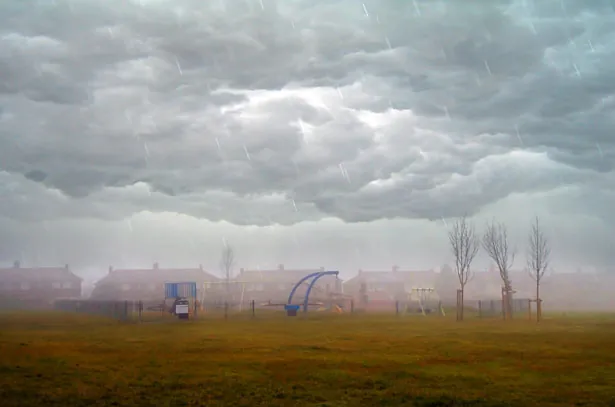
Unveiling the Connection: How Weather Patterns Could Trigger Salmonella Outbreaks!
2025-01-29
Author: Sarah
Introduction
A groundbreaking study from the University of Surrey has revealed a stunning link between climate change and the rise of Salmonella outbreaks, a major cause of foodborne illness across Europe. This alarming revelation emerges as experts warn of an increasing prevalence of dangerous diarrheal diseases attributed to shifting weather patterns.
Research Overview
Led by a distinguished team at Surrey's School of Veterinary Medicine, the researchers meticulously examined various weather factors that influence the spread of Salmonella—a bacterium responsible for approximately one in three foodborne outbreaks within Europe. Salmonella poses significant health risks, as it can lead to serious food poisoning symptoms including diarrhea, fever, and abdominal cramps. It predominantly lurks in contaminated food and is often found in areas lacking adequate sanitation and hygiene practices.
Methodology
In this pivotal study, published in the Journal of Infection, researchers analyzed data from the UK Health Security Agency regarding confirmed Salmonella cases in England and Wales from 2000 to 2016. They cross-referenced it with historical weather data compiled by the Met Office, taking into account 14 different weather variables. This comprehensive approach allowed them to pinpoint how combinations of weather conditions impact the risk of salmonellosis, shedding light on how local weather in the days leading up to outbreaks significantly affects transmission rates.
Key Findings
The findings pinpoint an alarming trend: key weather conditions such as warmer temperatures above 10 degrees Celsius, high relative humidity, a dewpoint temperature between 7 and 10 degrees Celsius, and extended daylight hours surpassing 12 to 15 hours are all correlated with spikes in Salmonella cases, regardless of geographical location. The research also garnered support from similar data analyses conducted in the Netherlands, further validating the team's conclusions.
Expert Insights
Dr. Gianni Lo Iacono, a Senior Lecturer in Biostatistics and Epidemiology at the University of Surrey, expressed optimism about the implications of their findings. "The model we utilized demonstrates significant potential, as our results were consistent across both England, Wales, and in independent studies in the Netherlands," he stated. "This suggests that there could be broader applications of this model in understanding Salmonella incidence in other high-income and European nations."
Call for Action
The researchers are calling for further investigation into Salmonella outbreaks in regions with diverse environmental and socio-economic conditions, particularly in tropical countries. As climate change continues to unfold, the implications for public health could be profound, underscoring the urgent need to assess how changing weather patterns could shape the future landscape of foodborne illnesses.
Conclusion
Stay tuned—this could be a game changer in our fight against foodborne pathogens! Share your thoughts below on how climate change might be influencing our health in unexpected ways!

 Brasil (PT)
Brasil (PT)
 Canada (EN)
Canada (EN)
 Chile (ES)
Chile (ES)
 Česko (CS)
Česko (CS)
 대한민국 (KO)
대한민국 (KO)
 España (ES)
España (ES)
 France (FR)
France (FR)
 Hong Kong (EN)
Hong Kong (EN)
 Italia (IT)
Italia (IT)
 日本 (JA)
日本 (JA)
 Magyarország (HU)
Magyarország (HU)
 Norge (NO)
Norge (NO)
 Polska (PL)
Polska (PL)
 Schweiz (DE)
Schweiz (DE)
 Singapore (EN)
Singapore (EN)
 Sverige (SV)
Sverige (SV)
 Suomi (FI)
Suomi (FI)
 Türkiye (TR)
Türkiye (TR)